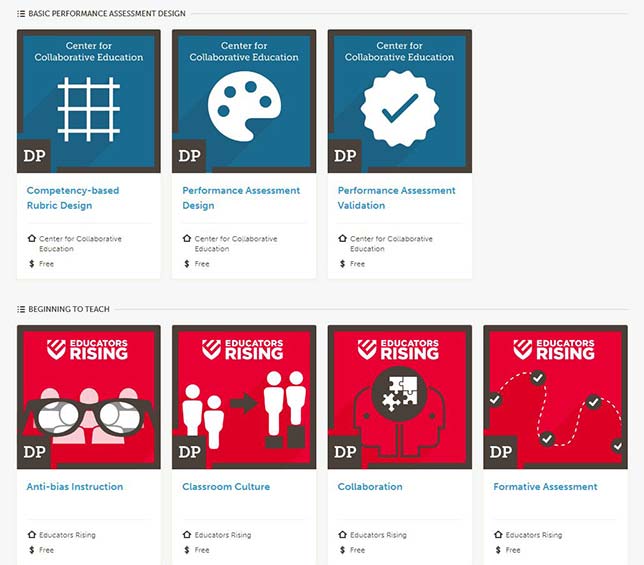Digital Promise Digital Badge Platform Offers 282 Micro-Credentials
- By Dian Schaffhauser
- 06/08/18
Digital Promise has launched its own micro-credential platform. The service enables educators to choose a micro-credential, compile the evidence and submit it. From there, an "assessor" will evaluate the submission against a rubric to determine whether the evidence indicates competence in that skill. If the answer is yes, the educator can start sharing the micro-credential through social media, email, and OpenBadges-compliant sites.
Micro-credentials, also known as digital badges, allow people to express their competency in a specific skill. In the education arena, schools and districts have begun promoting the credentials as a way for teachers and others to gain professional learning in discrete topics and practices. For example, the Long Beach Unified School District tested the use of the badges to identify teachers and administrators ready to lead staff training on Common Core and Next Generation Science Standards. A Wisconsin school district, Kettle Moraine, has allowed its educators to increase their base salaries through attainment of micro-credentials.

The new platform hosts 282 different micro-credentials that have been developed, assessed and awarded by 40 organizations. For example, the Friday Institute at North Carolina State University offers digital badges in 34 skill sets, from "collaboration to support student learning in a digital environment" to "foundations of practice in working memory." Many are free; others cost a few dollars.
"The Digital Promise micro-credential platform will allow us to continue to build the ecosystem while being responsive to the needs of our stakeholders," wrote Jennifer Kabaker, director of educator micro-credentials at Digital Promise, in an introduction to the program. "We will be able to conduct research on the use and impact of micro-credentials, build on the functionality of our platform based on user feedback, and continue to promote and support the ecosystem."
She added that the organization will continue working with its other platform partners, which also offer access to micro-credentials. Those include the NEA and BloomBoard.
The new platform is available on the Digital Promise website.
About the Author
Dian Schaffhauser is a former senior contributing editor for 1105 Media's education publications THE Journal, Campus Technology and Spaces4Learning.